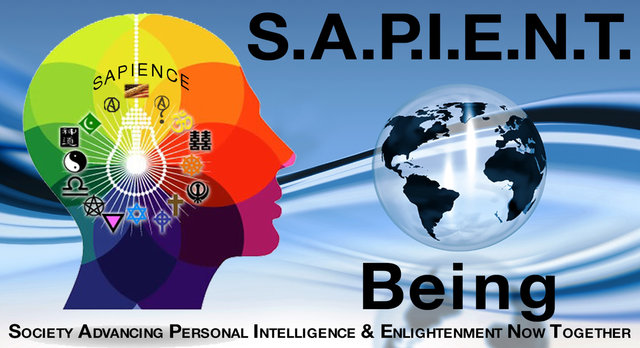| Progressivism as the New Marxism |
 |
| As in Marx’s older drama, the moral imperative of progressives is to once again “set things right.” In Marx’s time this was the task of revolutionaries. Today this task falls to progressive politicians and activists, social justice reformers, civil rights workers, cultural appropriation enforcers, diversity, and inclusion warriors and the like who have spread into the media, government, college campuses, neighborhood organizations and workplaces. Marxist revolutionaries sought to set things right by leading a revolution to overthrow the capitalist system and replace it with a just economic system. Progressives want to set things right through social change in order to create a just society. In a just society everyone is equal: men and women, immigrants and native-born, persons of various racial and ethnic groups, heterosexuals, and homosexuals, first and third world people, disabled and able-bodied. This will be a society free from the “isms” of sexism, nativism, racism, heterosexism, colonialism, and ableism. To the progressive, the success of the newly liberated oppressed person must not be limited by the extent of his talent or effort. Success is merited by the very existence of his membership in an oppressed group. As in Marxist theory—“from each according to his ability, to each according to his needs”—-even people of lesser abilities and efforts deserve equal outcomes. The progressive sees anything less than this as failure. Undergirding all this is the assumption that a just society will be gained through the intervention of government. Only government can force the needed changes. This is achieved through a complex and extensive web of government mechanisms: civil rights laws; affirmative action programs; minimum wage laws; housing assistance; guaranteed income; income maintenance programs that seamlessly transfer wealth from haves to have nots; block grants to states; guaranteed health care for all; national disaster relief….and more. Per Dr. Berger, “In the progressive view there is little tolerance for government that cannot deliver equal outcomes for all. However, every human being is unique and not standardized widgets, so ultimately, government is incapable of creating a society of equals (which is impossible).” The Critical Method of the Frankfurt School Fuels Progressivism Some of the key issues and philosophical preoccupations of the Frankfurt School’s Critical Theory and methods involve the critique of modernity and capitalist society, the definition of social emancipation, as well as the detection of the pathologies of society. The academic influence of Critical Theory throughout America’s academia provides the foundation for today’s progressivism thought, issues, and actions. These foundations were influenced by Marxism and/or inherently Marxist in nature. For a sapient being and follower of the Scientific Method—Critical Theory is a far-left social philosophy pertaining to the reflective assessment and critique of society and culture in order to reveal and challenge power structures. A primary criticism of the theory is that it is anti-scientific, both for its lack of the use of the scientific method, and for its overt criticism of science as a tool used for oppression of marginalized groups of people. The first generation of Marxist Frankfurt School philosophers, particularly Herbert Marcuse and Jurgen Habermas, have influenced generations within the American academy and its students throughout, and turned global, influencing methodological approaches in other European academic contexts and disciplines after World War II. It was during this phase that Richard Bernstein, a second generation Frankfurt School philosopher and contemporary of Habermas, embraced the research agenda of Critical Theory and significantly helped its development in American universities (after the initial influence of Marcuse) when he joined in 1989 the graduate faculty at the New School for Social Research in New York. The Impact of Richard Bernstein: Second Generation Frankfurt School Academic Prior to that, Bernstein spent 23 years at Haverford College in Pennsylvania where he published some of his most famous books, including Praxis and Action: Contemporary Philosophies of Human Activity (1971), The Restructuring of Social and Political Theory (1978), Beyond Objectivism and Relativism: Science, Hermeneutics and Praxis (1983), and Philosophical Profiles: Essays in a Pragmatic Mode (1986). In his 1983 book Beyond Objectivism and Relativism: Science, Hermeneutics, and Praxis, Bernstein diagnosed a serious issue that affects much of modern philosophy as it oscillates unendingly between two untenable positions; on the one hand, the dogmatic search for absolute truths, and on the other, the conviction that “anything goes” when it comes to the justification of our most cherished beliefs and ideas. Progressivism thrives on the later. The third generation of critical theorists, therefore, arose either from Habermas’ research students in the United States and at Frankfurt am Main and Starnberg (1971-1982), or from a spontaneous convergence of independently educated scholars like Bernstein throughout the United States and beyond. Therefore, third generation of Critical Theory scholars consists of two groups. The first group spans a broad time—denying the possibility of establishing any sharp boundaries. The second group of the third generation is instead composed mostly of American scholars who were influenced by Habermas’ philosophy during his visits to the United States. From there on, the philosophical reach of Critical Theory in America’s academia, educational institutions and social justice warriors can only be theorized from Bernstein to be outward and beyond. However, if one were to make a conservative estimate of their combined impact upon America’s academia, millions of college students, and Progressivism movement—based on all of the evidence, realizations and conclusions uncovered so far in The Sapient Being—Critical Theory and its methods are pervasive, entrenched, and wide spread. |
